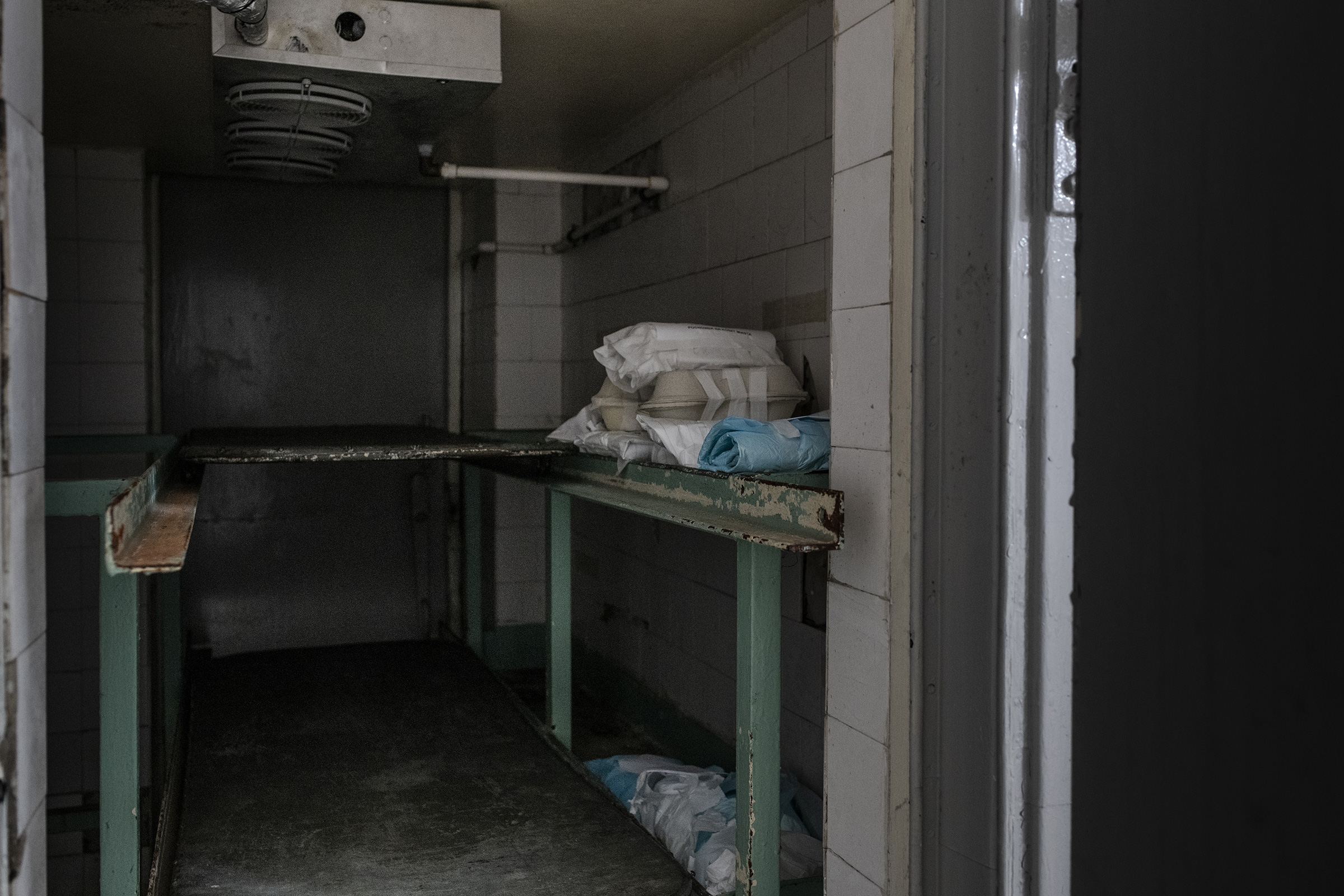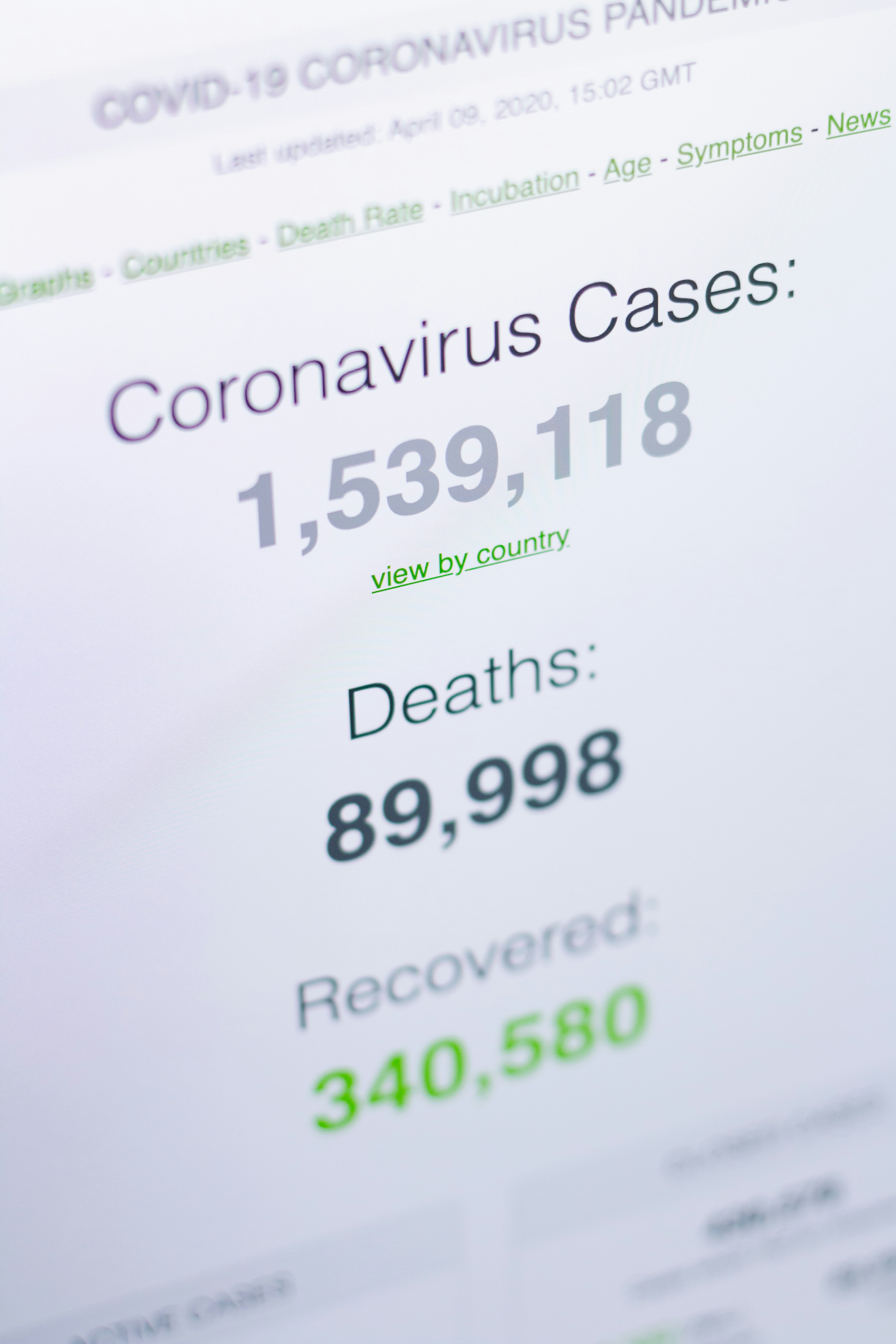This mission was supported by the Pulitzer Heart
Krzysztof Sowinski has cried day-after-day since his spouse Marta, who was 5 months pregnant, died of sepsis in 2022; he believes medical doctors put Marta’s life at risk by not giving them the choice to terminate the being pregnant whereas the fetus’ coronary heart was nonetheless beating. Janusz Kucharski additionally misplaced his companion Justyna to sepsis within the fifth month of a being pregnant. She left behind two boys.
It’s seemingly, reproductive-rights advocates say, that these girls can be alive if not for Poland’s more and more restrictive abortion legal guidelines. Abortion has been unlawful within the nation since 1993, however a 2020 ruling by Poland’s Constitutional Tribunal, which went into impact the following 12 months, eliminated one of many exceptions to the legislation—fetal abnormalities—and imposed a near-total ban on abortion. Now girls can terminate a being pregnant provided that the ladies’s life or well being is in danger (together with psychological well being dangers with a psychiatric prognosis) or if there’s cheap suspicion that the being pregnant resulted from rape or incest.
But as examples from throughout the nation point out, what the legislation permits shouldn’t be truly what is going on in observe. The results of the reproductive-rights rollback have been dire. Ladies who’ve abortions usually are not prosecuted below the legislation, however medical doctors and others who assist girls terminate pregnancies, as much as the purpose of viability, could withstand three years in jail. If an abortion takes place past the purpose of viability, then the one who aided within the abortion could withstand eight years in jail. This creates what many think about a “chilling impact,” as medical doctors afraid of operating afoul of the legislation hesitate to take lifesaving steps for pregnant sufferers. “Sufferers are powerless and medical doctors are more and more fearful,” says Professor Marzena Debska, a gynecologist at Debski Clinic in Warsaw.
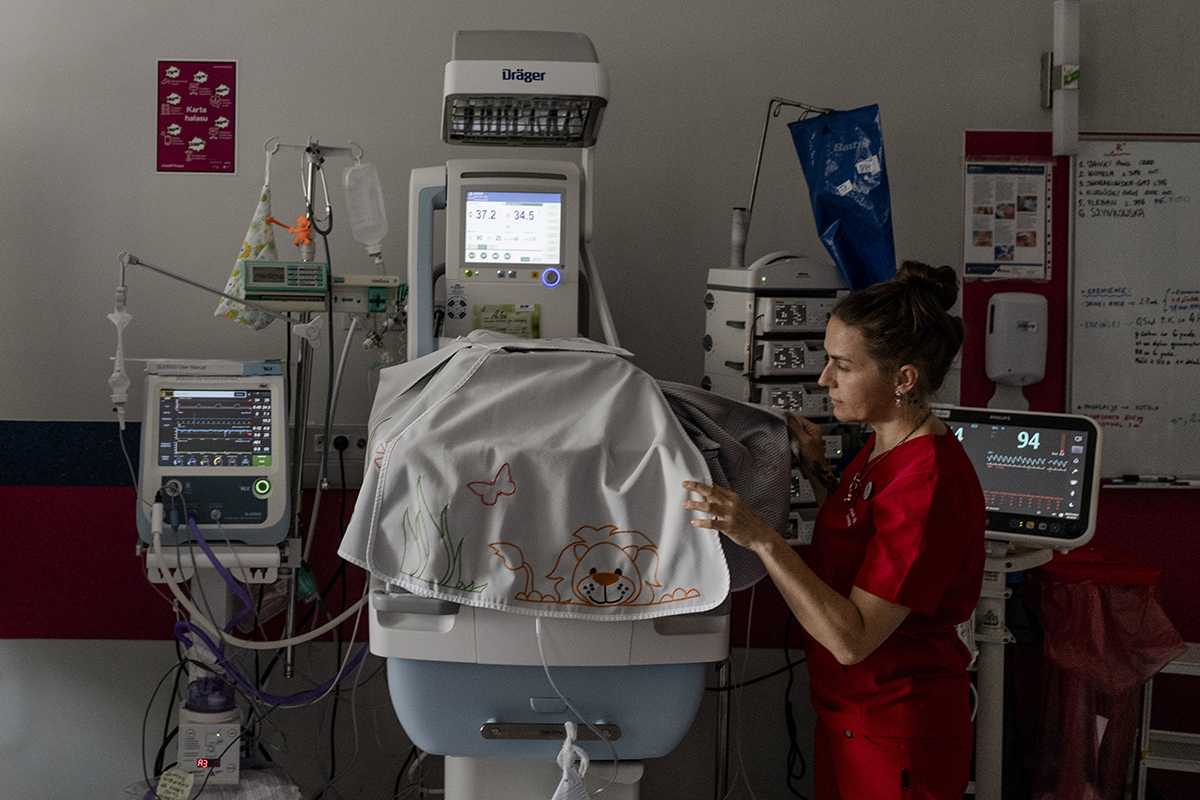
The considerations are just like these raised within the U.S., the place the 2022 overturning of Roe v. Wade allowed states to enact extreme restrictions on abortion. Ladies in Texas, Tennessee, Idaho, and Oklahoma have sued their states, claiming an absence of readability within the legal guidelines is stopping medical doctors from performing abortions on girls with critical being pregnant issues. During the last 30 years, 60 nations have liberalized abortion legislation, with solely 4 rolling again its legality: the U.S., Nicaragua, El Salvador, and Poland.
Formally in 2020, there have been seven maternal deaths in Poland. In 2021, there have been 9. Such low figures have persevered for greater than a decade, however specialists say the information is unreliable. “Yearly we estimate that there are virtually 3 times as many deaths as seem within the statistics. If a affected person dies within the intensive care unit, for instance, and never within the gynecology and obstetrics division, nothing within the certificates will hyperlink her demise to the being pregnant,” says Dr. Katarzyna Szamotulska, head of the epidemiology and biostatistics division on the Mom and Little one Institute in Warsaw. (Poland’s Ministry of Well being declined to reply a number of requests for remark in regards to the reliability of the statistics.) With medical doctors reluctant to intervene, toddler mortality charges have additionally risen, says Dr. Gizela Jagielska, the deputy director of the general public hospital in Olesnica and a gynecologist who performs lots of the few authorized abortions that also happen in Poland.
Jagielska says the anti-abortion motion calls her a “child killer” however she is undeterred. “I act in keeping with the legislation, utilizing the premise of saving a girl’s life. I’ll proceed to work it doesn’t matter what, as a result of who else will assist these girls?” she says. “I get threats, I’m referred to as the butcher of Olesnica. I am not afraid. I solely really feel sorry for the {couples} who come to me for session. These are probably the most traumatic moments of their lives, they usually have to listen to that they’re murderers.”
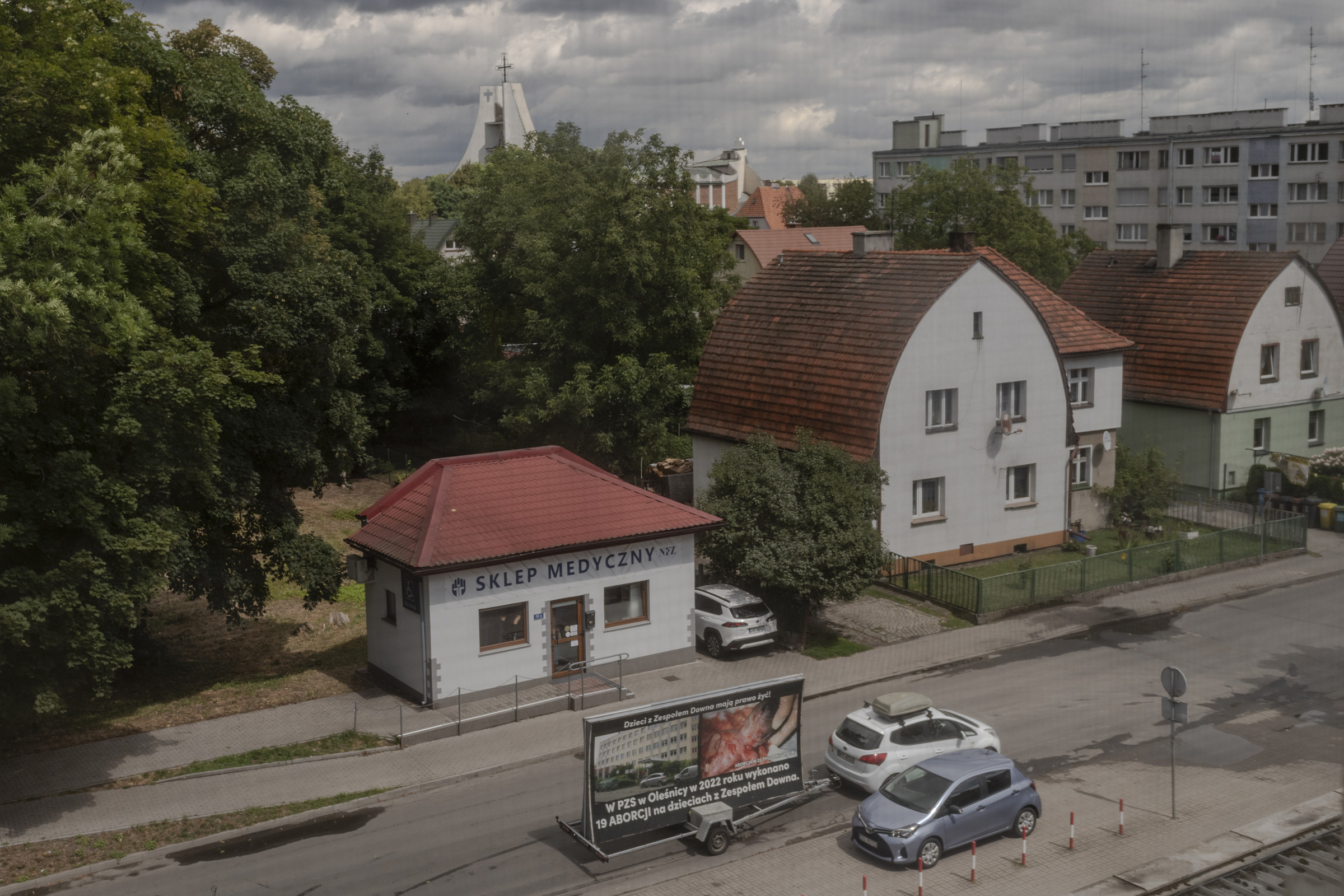
As a result of Poland’s ruling right-wing Regulation and Justice Social gathering (PiS) helps the restrictions, many wish to the Oct. 15 parliamentary elections to supply change. Others wish to the courts. Lawyer Jolanta Budzowska is representing households in criminal-negligence instances in opposition to medical doctors in relation to pregnant girls who died and suffered hurt in hospitals. She has additionally filed a criticism to the European Courtroom of Human Rights in opposition to the Polish authorities on behalf of a few of the households. “I believe there are extra such instances. And much more the place girls are survivors, however they’ve gone by a trauma and need to neglect about it,” Budzowska says.
In 2019, even earlier than the most recent restrictions, the U.N. Committee In opposition to Torture concluded that denying entry to authorized abortion in sure circumstances includes such intense bodily and psychological struggling as to represent torture, and referred to as on Poland to behave. “A 12 months in the past, I helped one other pregnant lady who was instructed by medical doctors to attend 4 days till the fetus died,” Budzowska says. “She obtained sepsis. She paid for it with despair.” In an opinion for the Workplace for Sufferers’ Rights, Professor Krzysztof Preis of the Medical College of Gdansk wrote that “the motion prolonging the affected person’s psychological struggling was inhumane and merciless therapy, utterly unjustified medically.”
To understand the human penalties of Poland’s abortion restrictions, TIME interviewed the households of pregnant girls who arrived at hospital with second-trimester being pregnant issues and later died, in addition to one lady who terminated her being pregnant and one other who delivered a boy with extreme well being issues (the kid died days later). Under are their tales.
Marta Sowinska
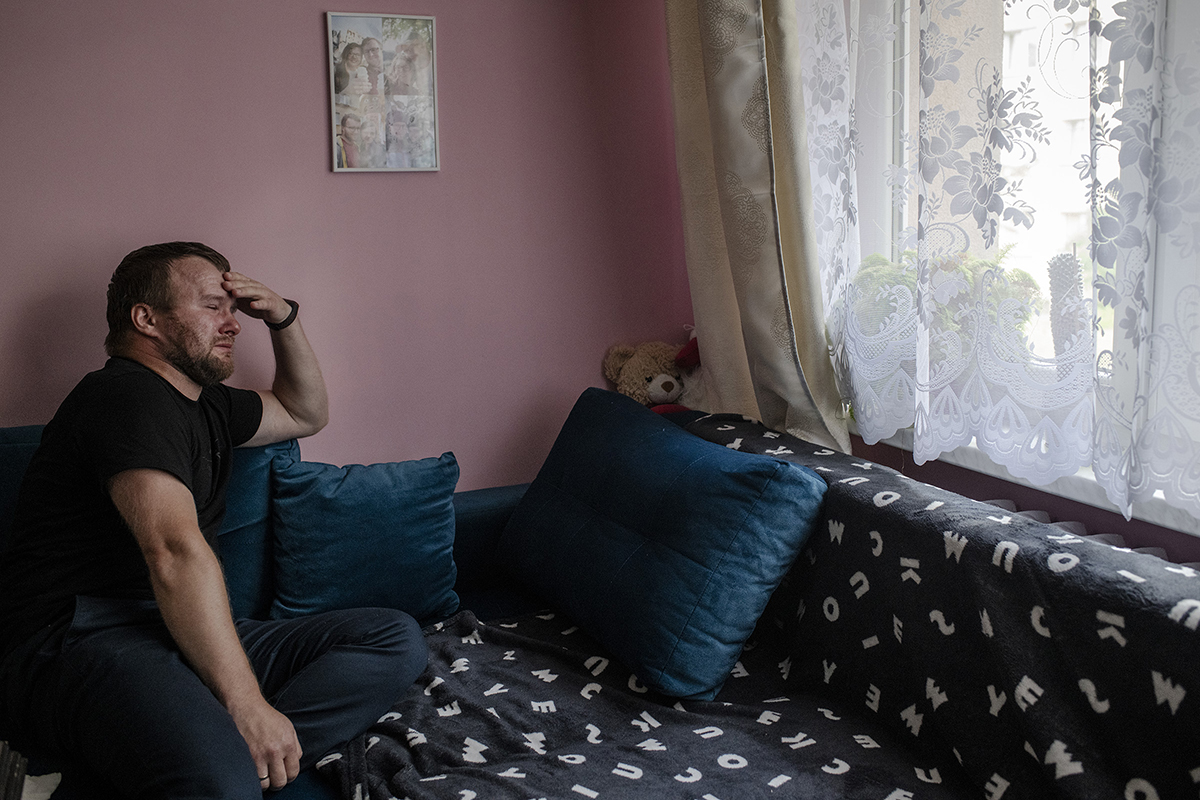
For greater than 5 years, Marta, 36, and Krzysztof Sowinski, 40, tried every part to have a child, together with in vitro fertilization. Marta miscarried twice, in 2019 and 2020. On Dec. 31, 2021, she found she was pregnant once more. “I beloved our child from the primary line on the being pregnant take a look at,” Krzysztof instructed TIME in July 2023, as he started to cry. On April 15, 2022, at 20 weeks, Marta began having contractions so Krzysztof drove her to the hospital within the southern Polish metropolis of Katowice.
The subsequent morning Marta didn’t really feel properly, however the fetus’s coronary heart was nonetheless beating so she hoped for one of the best, Krzysztof says. “Later she referred to as me, shivering with chilly: ‘One thing is improper with me. Possibly it is some irritation.’” She developed a 100°F fever, leukocytosis, and a quick pulse. The physician gave her hydroxyzine, an antihistamine with a sedative impact; paracetamol, a drugs used to scale back fever; and an antibiotic, in keeping with medical data obtained by Krzysztof and reviewed by TIME. At 1 a.m., Marta began bleeding from her beginning canal. The fetus’s coronary heart had stopped beating however the medical doctors moved her into the supply room anyway. “I joined her at 3:40 a.m. and held her hand the entire time,” Krzysztof says, visibly shaking. Medical data notice that Marta was “impolite, abusive, and undermines the midwives’ choices.”
Marta’s bloodwork from the hospital’s laboratory time-stamped 3:51 a.m. confirmed a procalcitonin (PCT) take a look at studying of 14.4—when a studying above 2 signifies a really excessive danger of sepsis. (The hospital instructed TIME in an announcement that medical doctors solely grew to become conscious of the PCT studying hours later; the hospital didn’t reply to inquiries as to why this delay occurred.) She delivered a stillborn boy at 5:19 a.m. “I stated goodbye to the boy two hours later. We already knew that we’d give him a funeral. I cried for hours within the ready room, so Marta couldn’t hear me,” Krzysztof says.

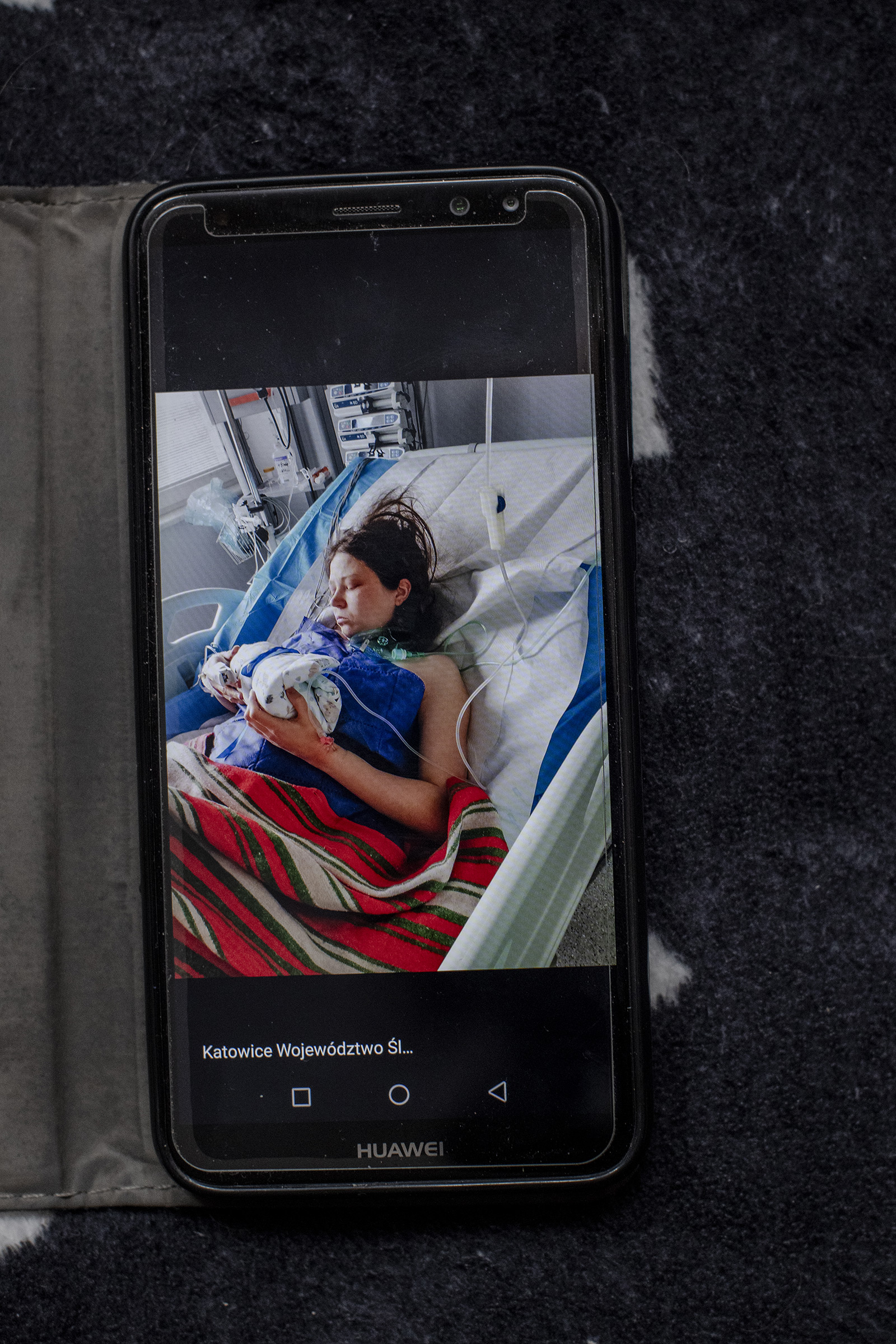
The hospital wrote to TIME in an announcement that “the affected person needed wholeheartedly to save lots of the being pregnant and even after discovering out that the fetus had no heartbeat she didn’t consent to the proposed medical motion (inducing a miscarriage).” Krzysztof tells it in another way: “She needed a child however did not need to die for it. At first she didn’t consent, however after 40 minutes, she stated OK. If they’d defined to us 12 hours earlier that Marta’s life was at risk, and the being pregnant needed to be terminated to save lots of her, neither of us would have given it a second thought. Abortion was not a taboo topic for us. We trusted them. Who am I to test the physician’s each step?”
Marta’s situation continued to deteriorate into the morning. By mid-afternoon, medical doctors raised the prospect of eradicating her uterus.
Nevertheless it was too late. “Marta fell right into a coma after the process and medical doctors instructed me to go residence, saying she might stay on this state for a lot of days. Just a few hours later, I acquired a name that Marta had died,” Krzysztof says. (Medical data don’t point out a coma.) “She was my solely good friend,” he provides. “The day she died, she stated I might do no matter I would like with our three embryos, frozen in a fertility clinic. Generally I take into consideration surrogacy outdoors of Poland, however then I understand the entire level of getting kids is to boost them collectively. However possibly it’s a approach to make part of her alive once more?”
Justyna Szymura
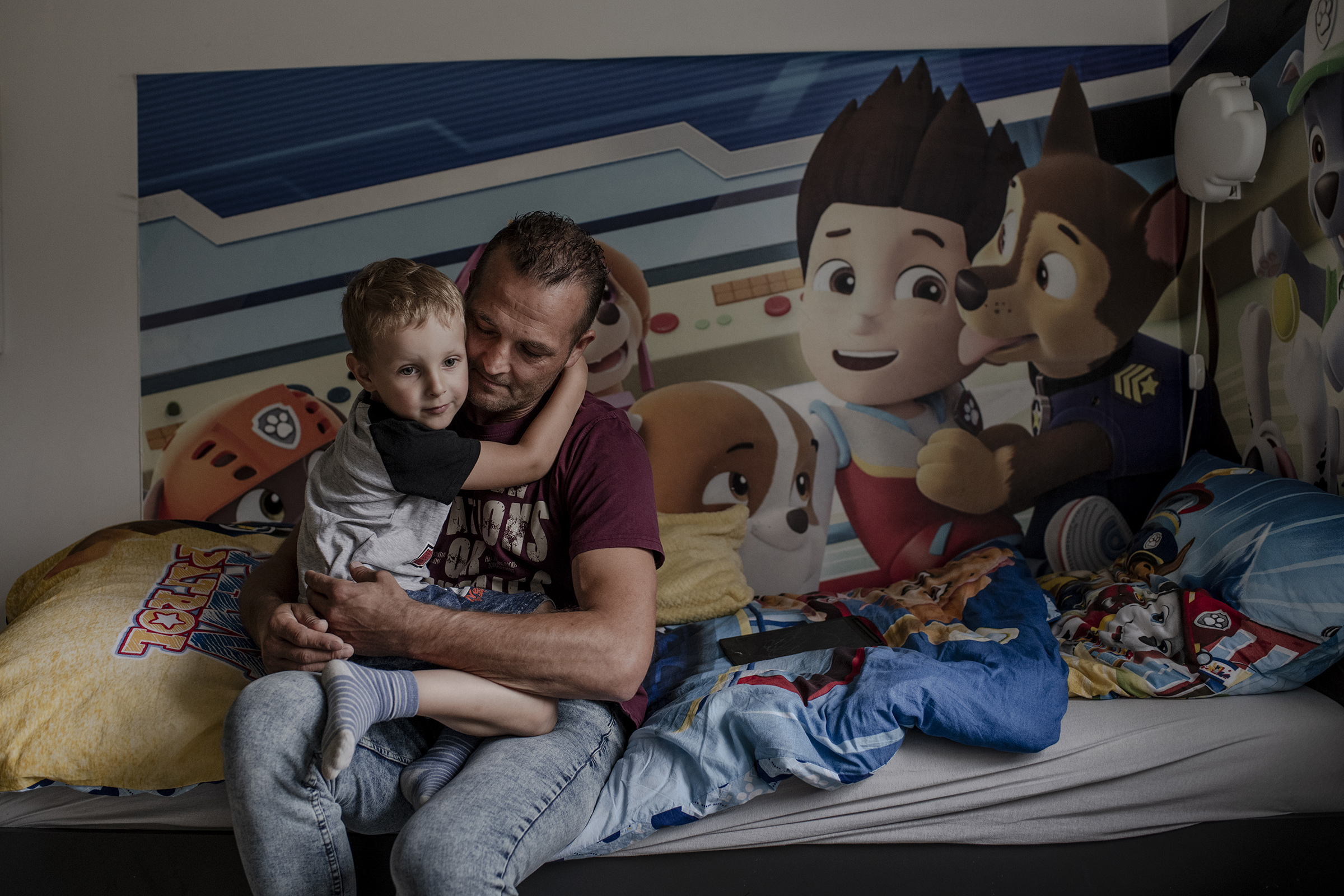
Earlier than Justyna Szymura’s demise in December 2020 at age 34, Janusz Kucharski, 42, by no means cried. Now he tells their 4-year-old son, Dawid, {that a} man additionally has the appropriate to grieve. He says he won’t forgive the physician who patted him on the again and instructed him that “nothing may very well be carried out” simply after Justyna died.
Whereas Justyna lay dying, the most important protests within the nation for the reason that fall of the communist rule in 1989 crammed the Polish streets. Following the Constitutional Courtroom ruling in October 2020 to additional limit abortion entry, greater than 1,000 demonstrations had been organized, with over 1 million folks collaborating.
Justyna was 18 weeks pregnant when she began bleeding from her beginning canal and went to the hospital in Wodzislaw Slaski on Dec. 9. Bloodwork outcomes at 9:08 p.m. confirmed a excessive C-reactive protein (CRP) take a look at, which indicated irritation in her physique, in keeping with an opinion issued by Professor Miroslaw Wielgos, an skilled witness for Poland’s Workplace for Sufferers’ Rights, on Justyna’s care. Wieglos’ opinion states that she was given an antibiotic and apparently left alone for 12 hours.
Professor Wielgos wrote in his opinion that the antibiotic couldn’t have labored as a result of “two weeks earlier, a tradition from the genital tract confirmed the presence of a micro organism proof against its motion.” He additionally criticized the hospital’s determination to go away Justyna alone for 12 hours: “The consequence [of high leukocytosis and CRP] needs to be the monitoring of the effectiveness of the therapy by repeating the exams after a most of 4-6 hours.”
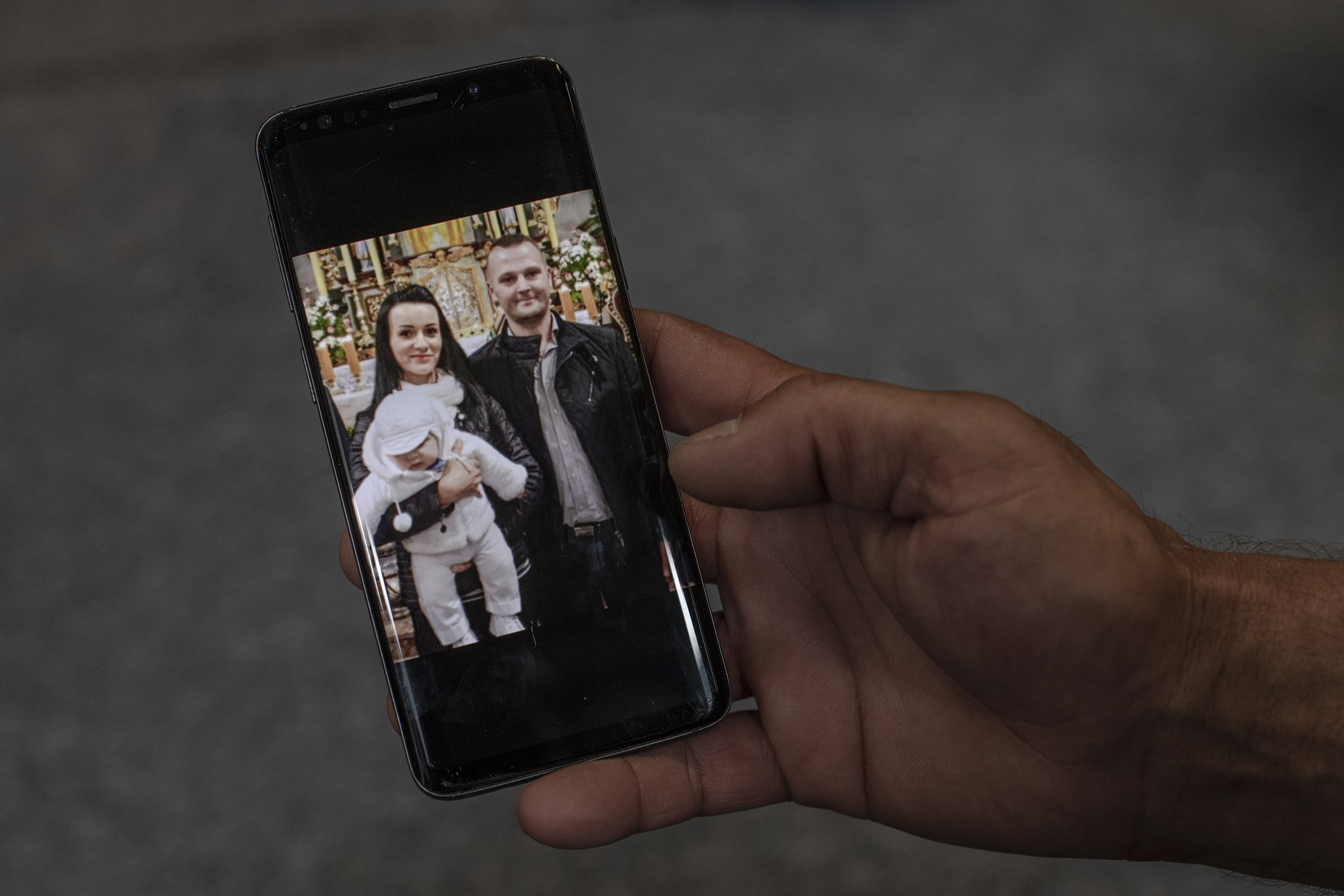
The subsequent morning, Justyna texted Janusz: “I fainted within the toilet. I am vomiting since 5 a.m. and I’ve diarrhea.”
Docs started inducing a miscarriage at 9:20 a.m on Dec. 10. “Maybe it could have been undertaken a number of hours earlier, if the inflammatory parameters had been correctly monitored,” wrote Professor Wielgos. Laboratory take a look at outcomes quickly confirmed an extra enhance in CRP, and there was a pointy enhance in PCT in addition to extra vomiting, the looks of chills and a fever, wrote Professor Wielgos in his opinion. He wrote that medical doctors wanted to ” instantly intensify motion and proceed with instrumental emptying of the uterine cavity,” however as a substitute they proceeded with the induction of the miscarriage. By 11:30 a.m., no fetal coronary heart perform was detected. Justyna gave beginning to a stillborn boy at 1:30 p.m. She named him Antoni. Resulting from persistent hemorrhage, a choice was made to surgically take away the uterus to which Justyna gave her consent. After being transferred to ICU, she died of sepsis the following day, at 1:30 p.m. on Dec. 11.
Within the demise certificates, the hospital wrote that the reason for demise was “a number of organ failure.” In an electronic mail assertion on Sept. 22 to TIME, they stated that the “affected person was given due care by the medical workers enough to her situation.” The hospital stated in a subsequent assertion that “the fast reason behind demise was hemorrhagic shock with blood clotting abnormalities and related multi-organ lesions. The hemorrhage, alternatively, was attributable to uterine most cancers. Thus, the reason for demise was not associated to being pregnant, a lot much less to childbirth, however to most cancers.” Based on Budzowska, who’s representing Janusz and Dawid, an examination confirmed a placental web site tumor, however Budzowska says, “Our important allegation is that the irritation was poorly handled, and the affected person was not supervised, which led to the event of sepsis and septic shock. If Szymura had survived and the placental web site tumor had been detected, she would have undergone chemotherapy and had about an 85% probability of survival.”
Based on Poland’s Central Statistical Workplace, not a single lady within the Silesian province, the place Wodzislaw Slaski is positioned, died that 12 months on account of obstetric issues.
Izabela Sajbor
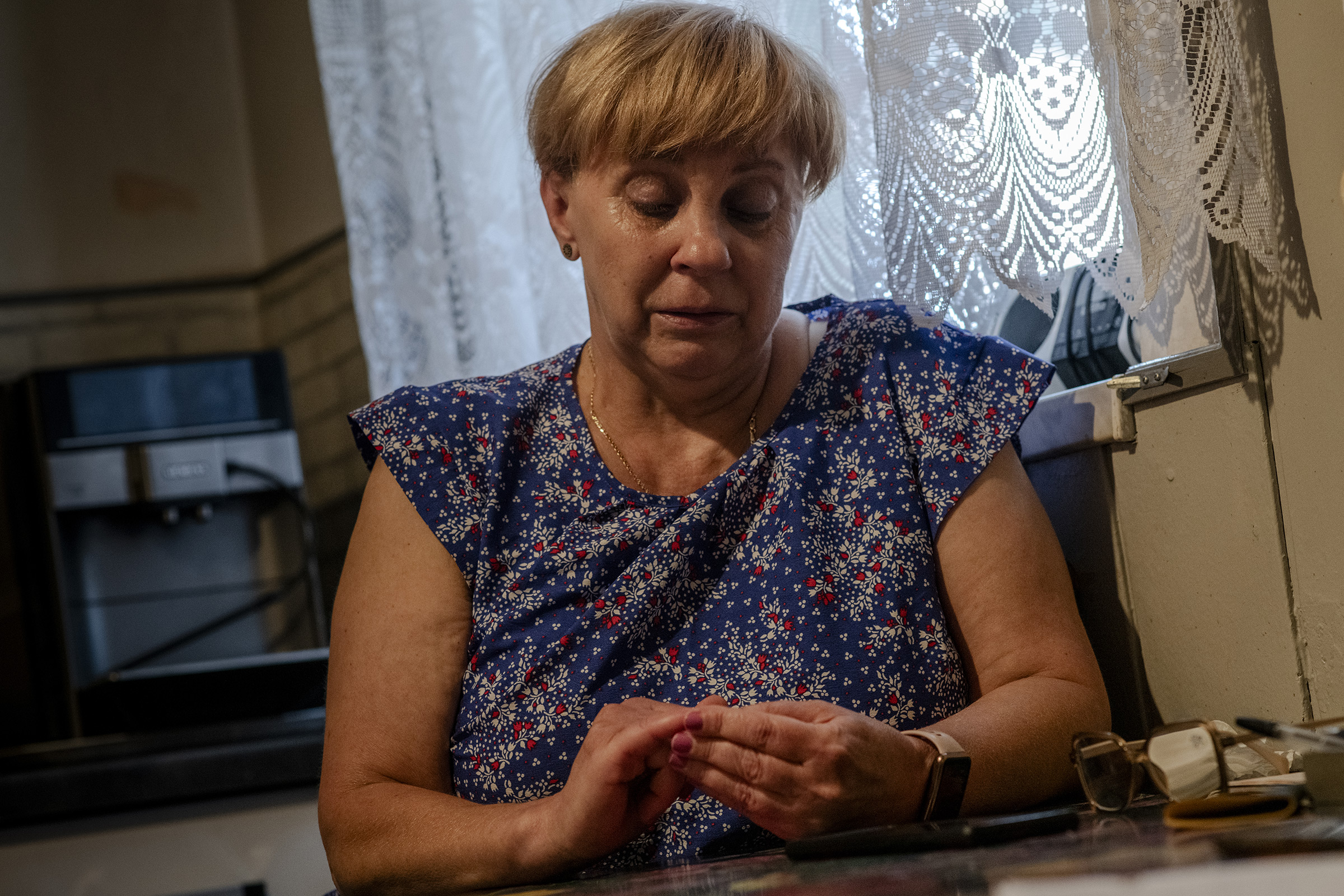
Izabela Sajbor, 30, was 22 weeks pregnant when her water broke within the early morning of Sept. 21, 2021, and she or he went to the Joannitas hospital in Pszczyna, in southern Poland.
By the night of Sept. 21, Izabela was shaking from a fever. Bloodwork earlier within the day had indicated elevated CRP ranges, in keeping with medical data reviewed by TIME. “Due to tremendous PiS they’ll wait till it’s lifeless. If not, nice, I can count on sepsis!” Izabela messaged her mom Barbara Zientek, who lived in Cwiklice, a 15-minute drive from Pszczyna, however was unable to go to her daughter in hospital due to pandemic-related restrictions. Prenatal testing earlier in Izabela’s being pregnant indicated that the fetus may need Edwards syndrome—a congenital syndrome on account of an additional copy of the 18th chromosome that’s normally deadly; about 90% of infants with this situation don’t survive the primary 12 months—although Skrobol says Izabela had shared this data solely together with her husband. Izabela by no means had amniocentesis to substantiate a prognosis.
“They can not do something, as a result of somebody might suppose they did it on function,” she texted her mom. “My life is in danger. And I’ve to attend. Kisses mommy,” she additionally wrote. (TIME has reviewed the messages.)

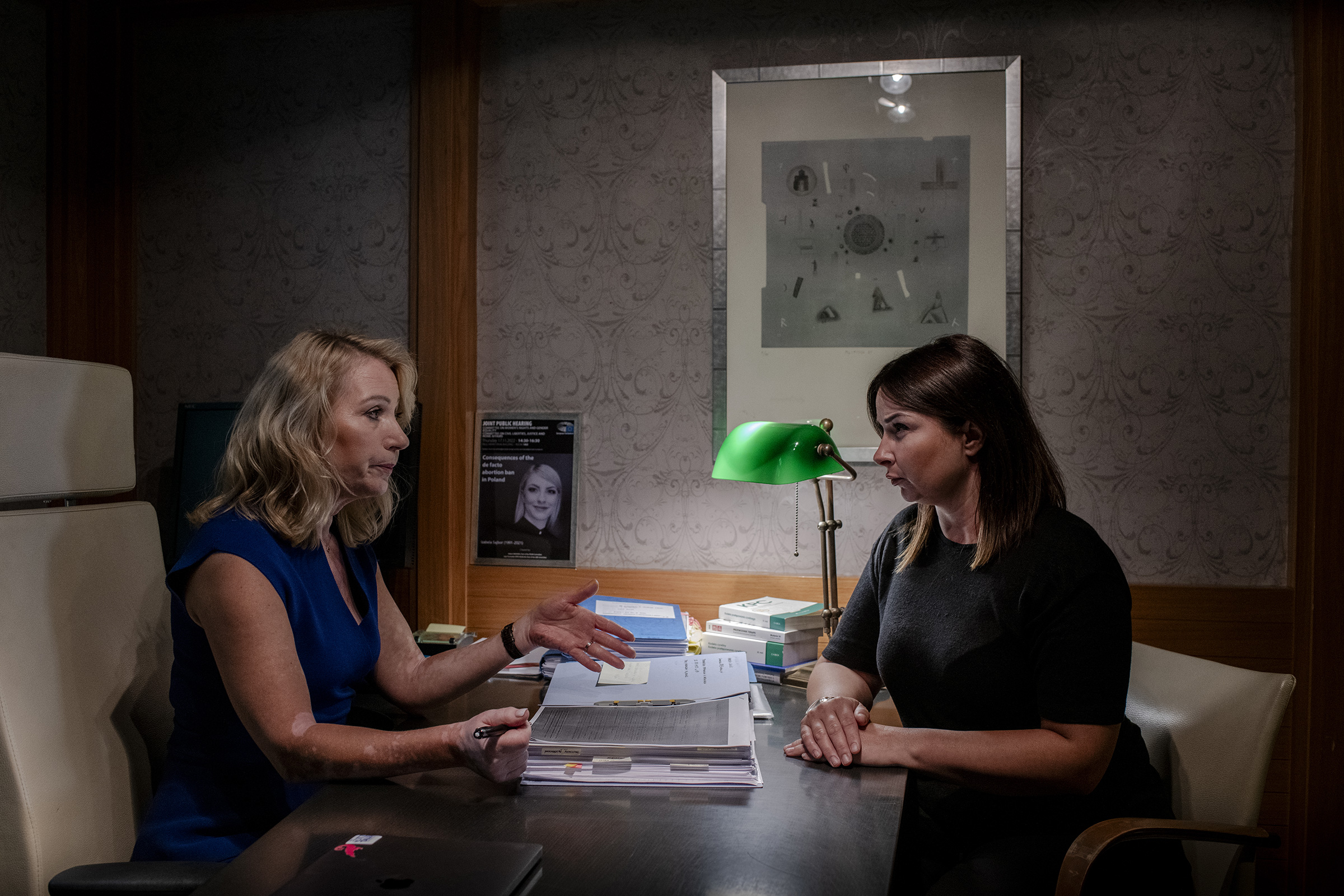
Docs had administered fentanyl and Diazepam, in keeping with TIME’s overview of the medical data. That night, “Izabela was crying for assist,” Skrobol says. “She was heard by different sufferers. ‘I’ve somebody to stay for!’ she yelled, serious about her 8-year-old daughter, Maja.” Izabela died at 7:35 a.m the following morning, lower than 24 hours after she was admitted.
Based on Budzowska, three medical doctors have been charged with endangering life and well being, and one in all them has been charged with inflicting demise. All three medical doctors pleaded not responsible. The hospital in Pszczyna has not replied to a number of requests for remark.
Dorota Lalik
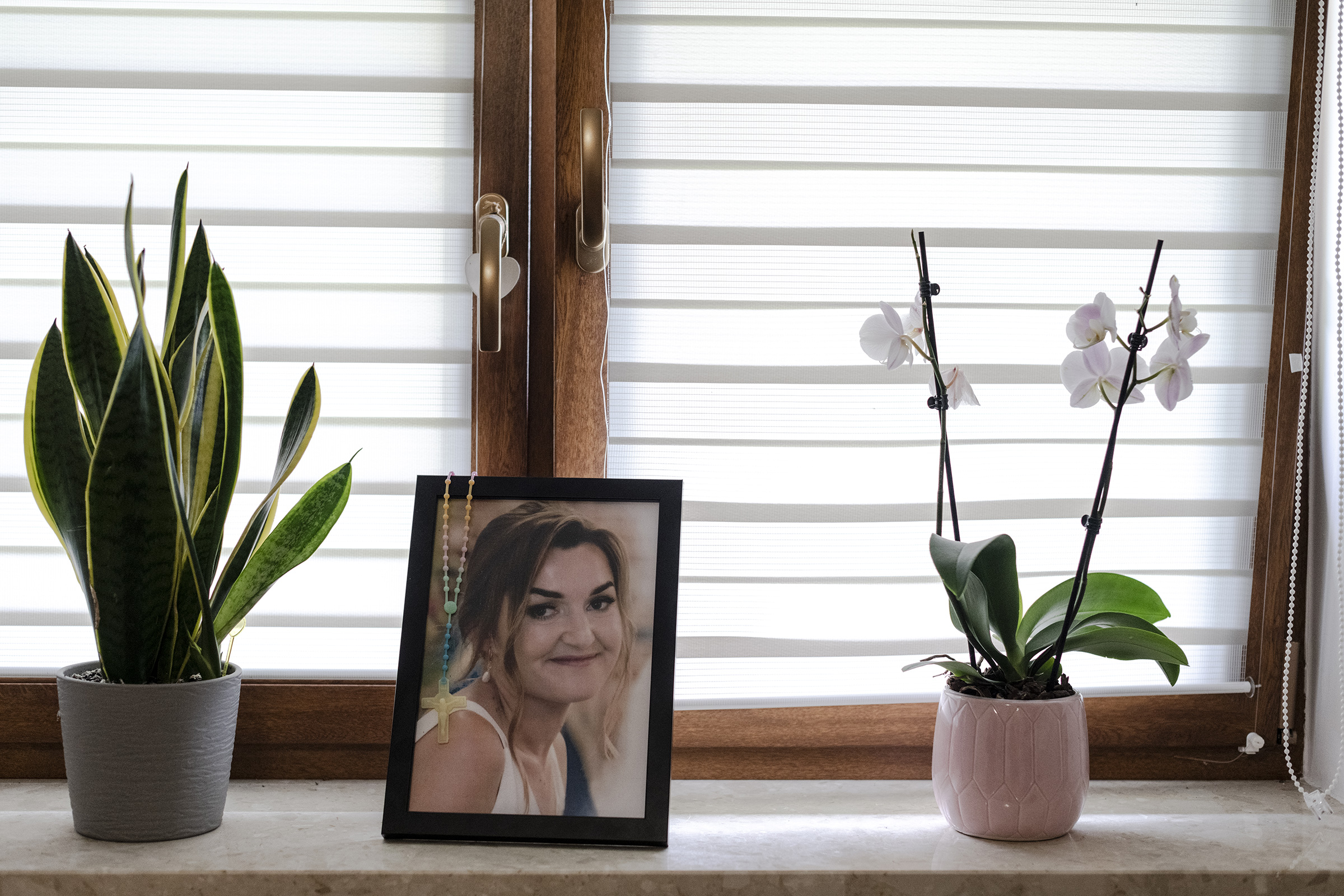
Dorota Lalik, 33, was 20 weeks pregnant when her water broke on Could 20, 2023. She and her husband, Marcin Lalik, 27, had been visiting household in Nowy Targ on the time, so he took her to the hospital named after Pope John Paul II within the southern Polish city. Docs carried out an ultrasound that confirmed the fetus nonetheless had a heartbeat.
Dorota had a headache on Could 22, and bloodwork indicated her CRP was rising, in keeping with Budzowska’s overview of the medical documentation. (Budzowska, who’s representing Dorota’s household, declined to share the documentation with TIME citing an ongoing investigation.) On the 23rd, she started vomiting, and her headache worsened. “Nobody knowledgeable us that the possibilities of saving our child had been near zero, and sepsis was virtually inevitable,” Marcin says.
“Often girls need to battle for his or her youngster. A very powerful factor is to actually clarify to them what their scenario is. And observe them rigorously, as a result of the specter of sepsis will be, although not at all times, caught at an early stage,” stated Dr. Krzysztof Preis, a gynecology advisor for the Ministry of Well being for the Pomeranian area. Professor Preis stated he would resolve whether or not to terminate a being pregnant as quickly as the primary indicators of an an infection appeared, however for years, medical doctors within the area “hid behind the ‘conscience clause,” and declined to carry out an abortion if it conflicted with their beliefs. “However for me,” he stated, “to place a girl’s life in danger contradicts the Bible.”
Dorota had been jotting down a couple of phrases each day with a pencil in her prayer guide, however by that night time, she not had the power to jot down. She spoke to her husband for the final time at 9 p.m. and instructed him she beloved him. As a religious Catholic Dorota opposed abortion, however Marcin says it’s exhausting to say what she would have chosen if given the choice to terminate the being pregnant. “However for positive it’s higher to save lots of one life than to lose two,” he tells TIME.
On Could 24, medical doctors ordered a second ultrasound and located the fetus’ coronary heart had stopped beating. Three hours later, and after dialogue with a regional advisor, medical doctors determined to take away the fetus in addition to Dorota’s uterus. Dorota died at 9:34 a.m. from sepsis regardless of 90 minutes of tried resuscitation.
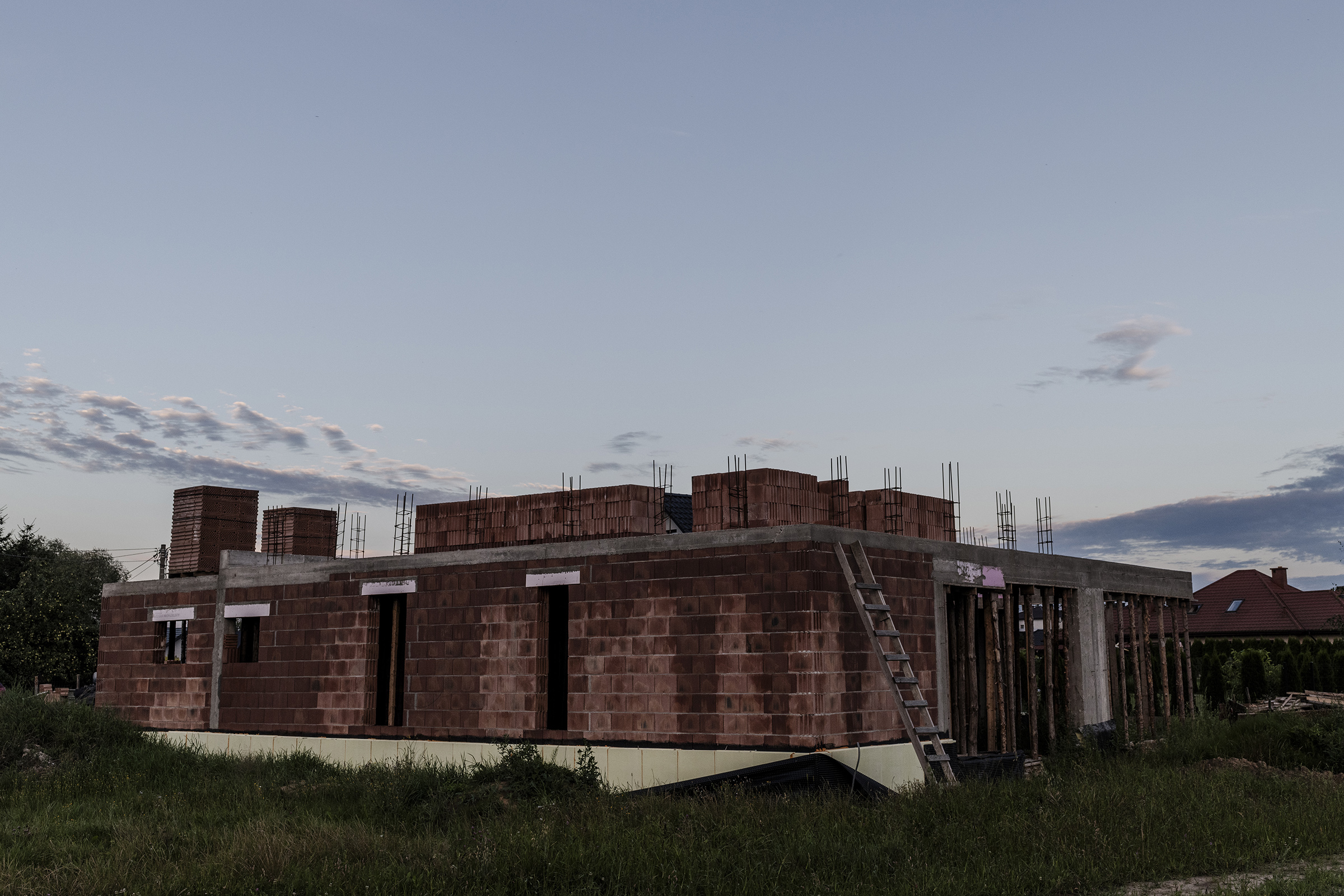
In June a sufferers’ rights ombudsman Bartlomiej Chmielowiec acknowledged that “the investigation revealed a variety of irregularities that occurred in the course of the affected person’s keep within the hospital. No further measures had been taken in view of the rising CRP; enough antibiotic remedy was not applied in time and the affected person was not supplied induction of miscarriage on Could 22 (the day after admission to the hospital) in view of the rising CRP. The supervision of the pregnant lady was not carried out in accordance with due diligence and in accordance with present medical data.” In August, Marek Wierzba, the pinnacle of the hospital, despatched a letter expressing condolences and “deep remorse for the demise of Mrs. Lalik and her unborn youngster” to Marcin Lalik. “The administration of the hospital in Nowy Targ apologizes for the violation of the rights of Mrs. Dorota Lalik to well being providers comparable to the necessities of present medical data, fast provision of well being providers in case of hazard to well being and life, well being providers associated to childbirth, well being providers supplied with due diligence and to details about her well being situation,” Director Wierzba wrote.
“The demise of a pregnant affected person is a large tragedy not just for the kin of the deceased or the general public, but in addition for the administration and workers of the Hospital,” the hospital stated in an announcement to TIME. “The affected person was saved knowledgeable of her and the infant’s situation. Each the affected person and the household acquired assist from a psychologist.
“To one of the best of our data, neither in 2005 nor thereafter has there been any official declaration from the hospital that being pregnant terminations won’t be carried out at our facility. Now we have not reached any doc or file that confirms this. The identical goes for invoking the conscience clause. We’re dedicated to making sure {that a} comparable scenario doesn’t happen once more.”
The hospital then outlined steps it had taken to make sure “an identical scenario doesn’t happen once more,” together with somebody to restructure the gynecology-obstetrics division and conducting coaching classes. “Out of respect for the household and kin of the deceased, in addition to the relevant legal guidelines (confidentiality of medical data), the Hospital Director maintains his place and won’t touch upon your complete case till it’s clarified by the related authorities.”
Joanna
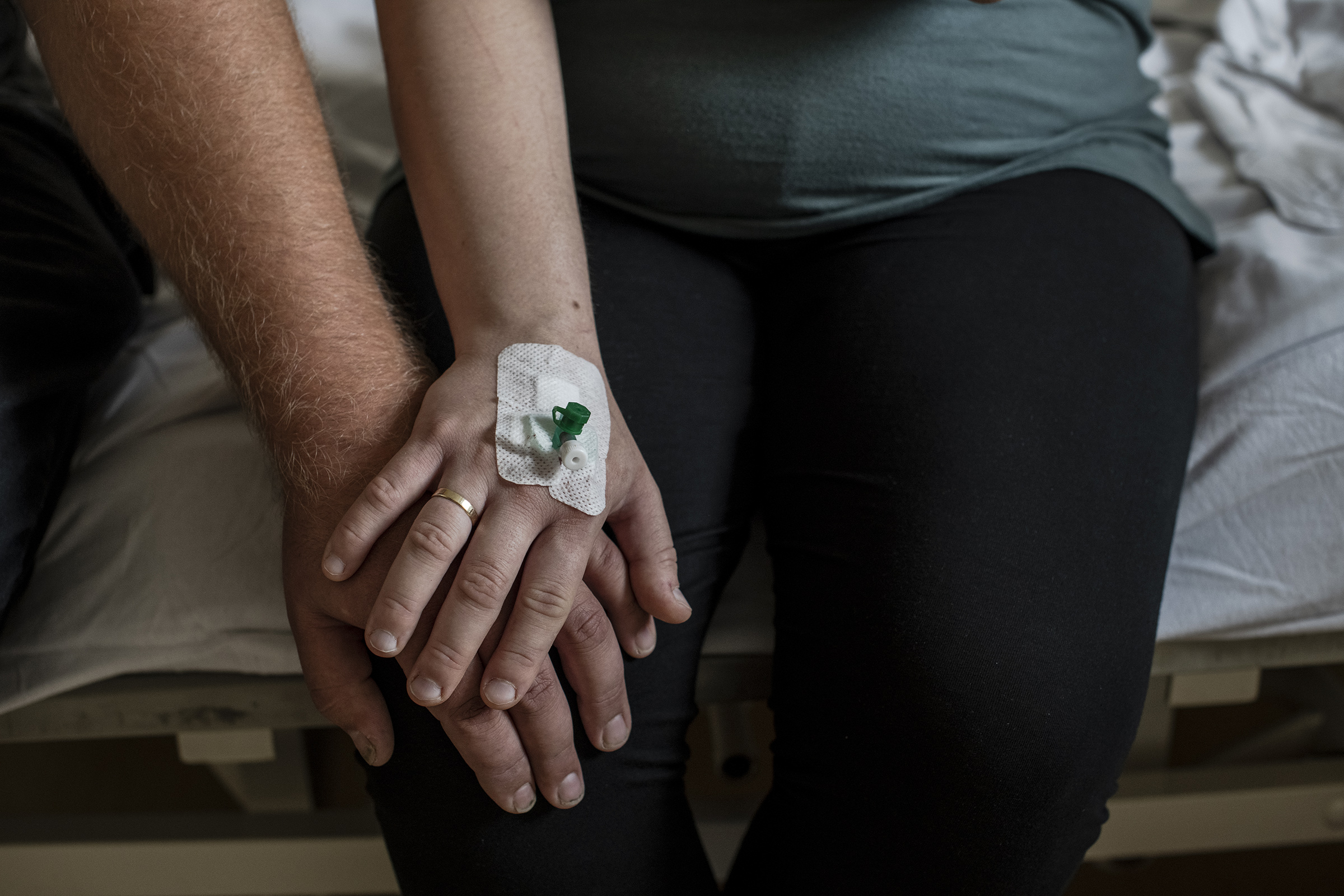
Joanna and Marek, 26 and 32, discovered in Could 2023, about 4 months into Joanna’s being pregnant, that the fetus had a diaphragmatic hernia, a beginning defect in which there’s a gap within the diaphragm that enables stomach organs to maneuver into the chest. (TIME is utilizing pseudonyms for Joanna and Marek due to privateness considerations.) They consulted a physician who instructed them the kid had a couple of 50-50 probability of surviving beginning. “The physician was unsure if he would have legs and may very well be lacking different organs,” Marek instructed TIME from Olesnica hospital in August. The physician instructed them he might function to maneuver the organs to the appropriate place and stitch up the diaphragm as soon as the kid was born however it could be costly. Given the political panorama, the couple was afraid to ask about terminating the being pregnant.
“I’m chronically ailing and I believed it was all my fault. I used to be instructed by a physician to cease crying and take care of it,” Joanna says. “I used to be afraid that one thing would occur to me or the infant. At 21 weeks, I ordered drugs on-line to induce an abortion at residence, however the bundle got here empty. I used to be going out of my thoughts and I ended up within the ER with a panic assault.”
It’s then that Joanna and Marek determined to take motion. The Basis for Ladies and Household Planning (FEDERA), a Polish nonprofit that fights for reproductive rights, referred them to Dr. Jagielska. On Aug. 1, when Joanna was 27 weeks pregnant, they traveled 250 miles from their residence in northern Poland to the hospital in Olesnica. Just a few hours after arriving, Dr. Jagielska administered a fetal intracardiac potassium chloride injection to the fetus’s coronary heart to terminate the being pregnant. They determined to not see the infant afterward.
“The fetus had virtually no lung tissue. It could have died instantly or a couple of hours after beginning,” Jagielska recollects.
Maria
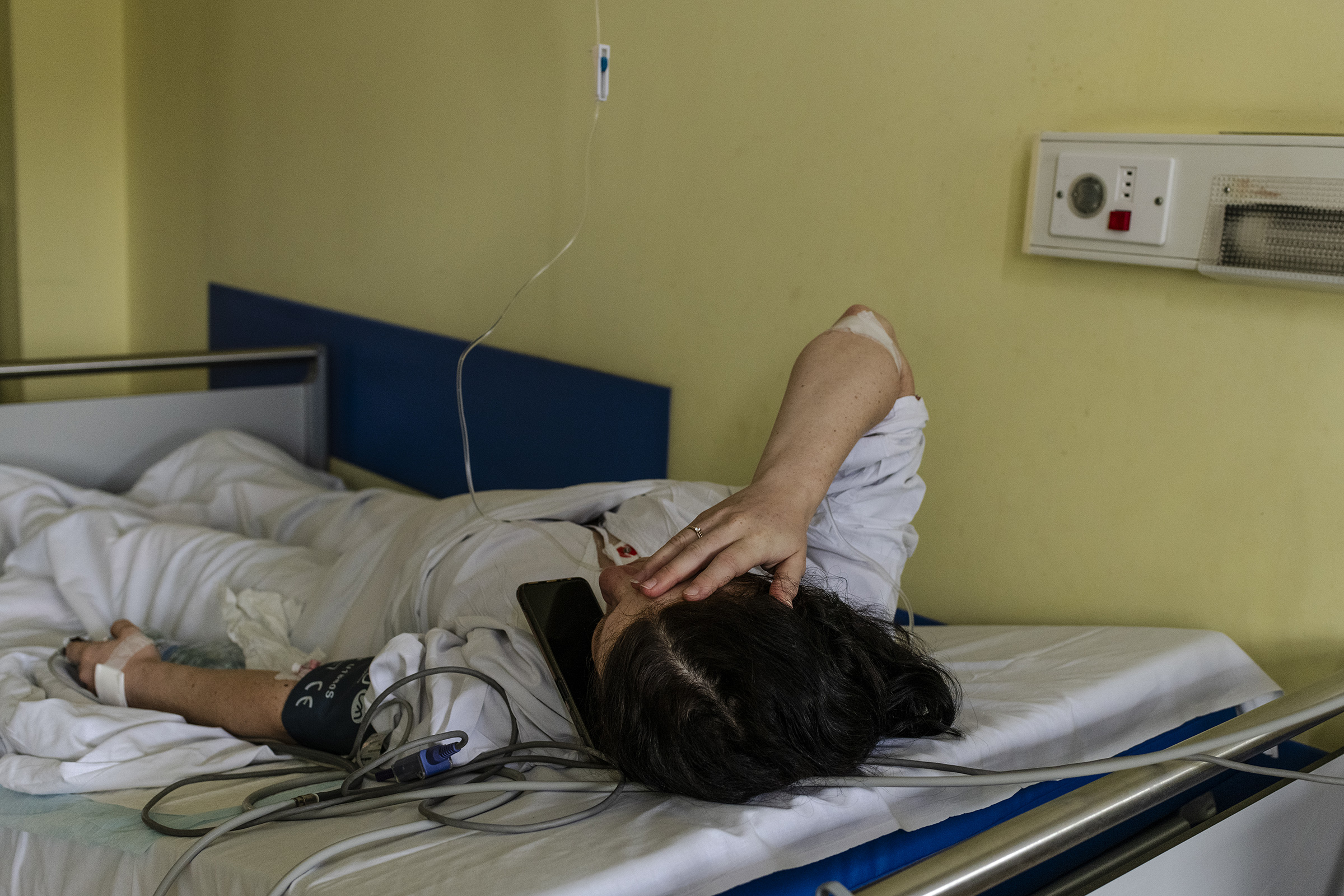
Whereas Joanna and Marek had been ready for the abortion, in one other room at Jagielska’s hospital in Olesnica, Maria, 25, a Ukrainian refugee who got here to Poland following Russia’s full-scale invasion of her nation, gave beginning to a boy on Aug. 1, 2023. (TIME is utilizing a pseudonym for privateness considerations.)
Take a look at outcomes earlier in Marta’s being pregnant indicated the infant had hydrocephalus, a build-up of fluid within the mind, which Dr. Jagielska says is probably going as a result of Maria had toxoplasmosis, a typical an infection attributable to a parasite. However in keeping with Jagielska, medical data from a earlier doctor didn’t point out any therapy. “How will you not discover that there’s water as a substitute of a mind?” asks Jagielska. “Sadly such issues are on the rise. Just a few days in the past I had a affected person with a fetus lacking half of the guts. These medical doctors simply do not need to take duty for what occurs subsequent.”
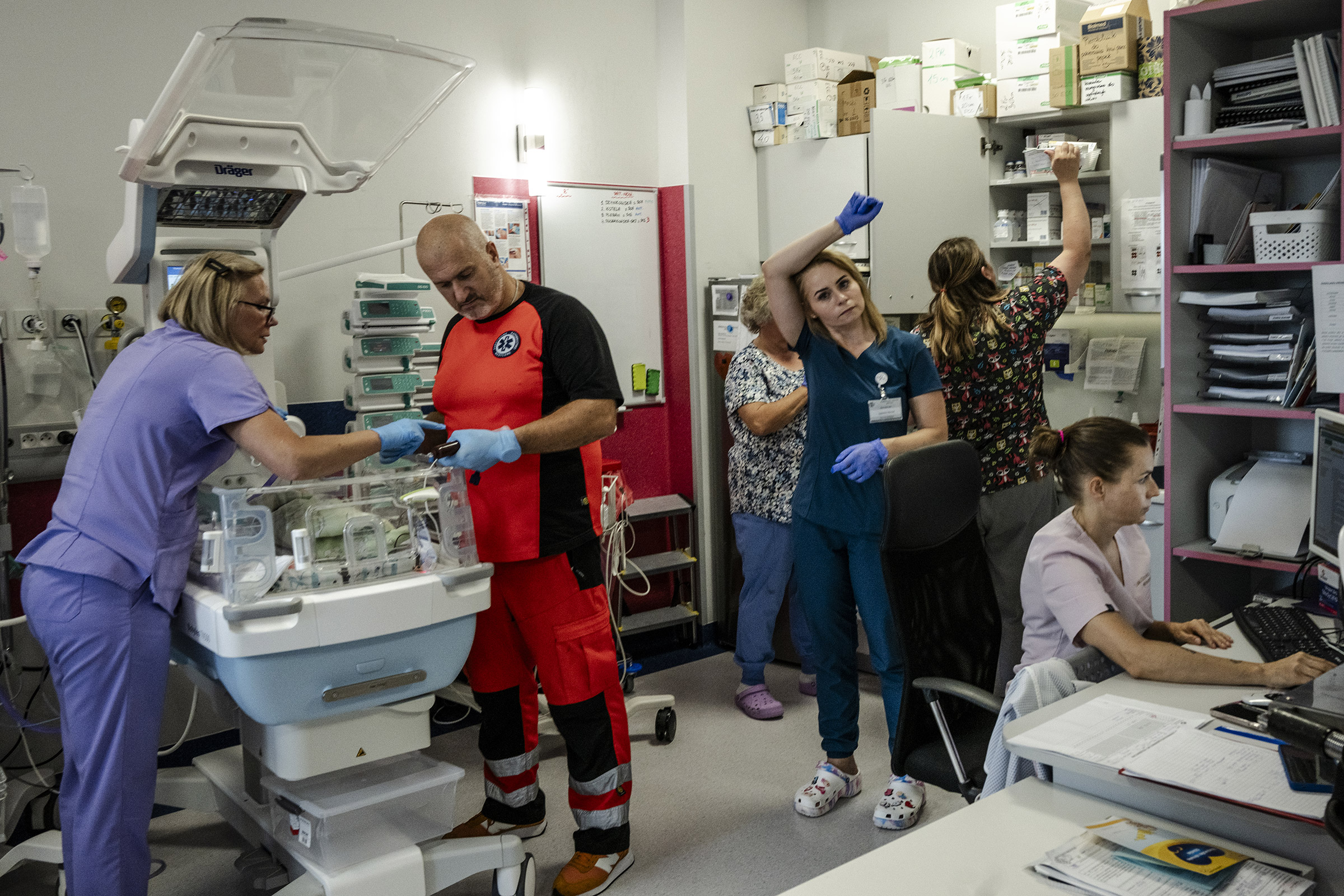
Dr. Jagielska, together with 11 different medical doctors, paramedics, and nurses tried to save lots of Maria’s son who, after a number of hours, was taken to a specialised hospital in Wroclaw, in southwestern Poland. Maria was in shock and, as a result of language barrier, barely understood what was taking place. A month later, by the choice of a neonatology advisor within the Decrease Silesia area, the infant’s life assist was switched off. “I do not understand how I might really feel if I knew in regards to the malformations from the start,” Maria instructed TIME in Olesnica hospital the day she gave beginning on Aug. 1, “however I wish to have been given a alternative.”—With reporting by Kasia Strek
